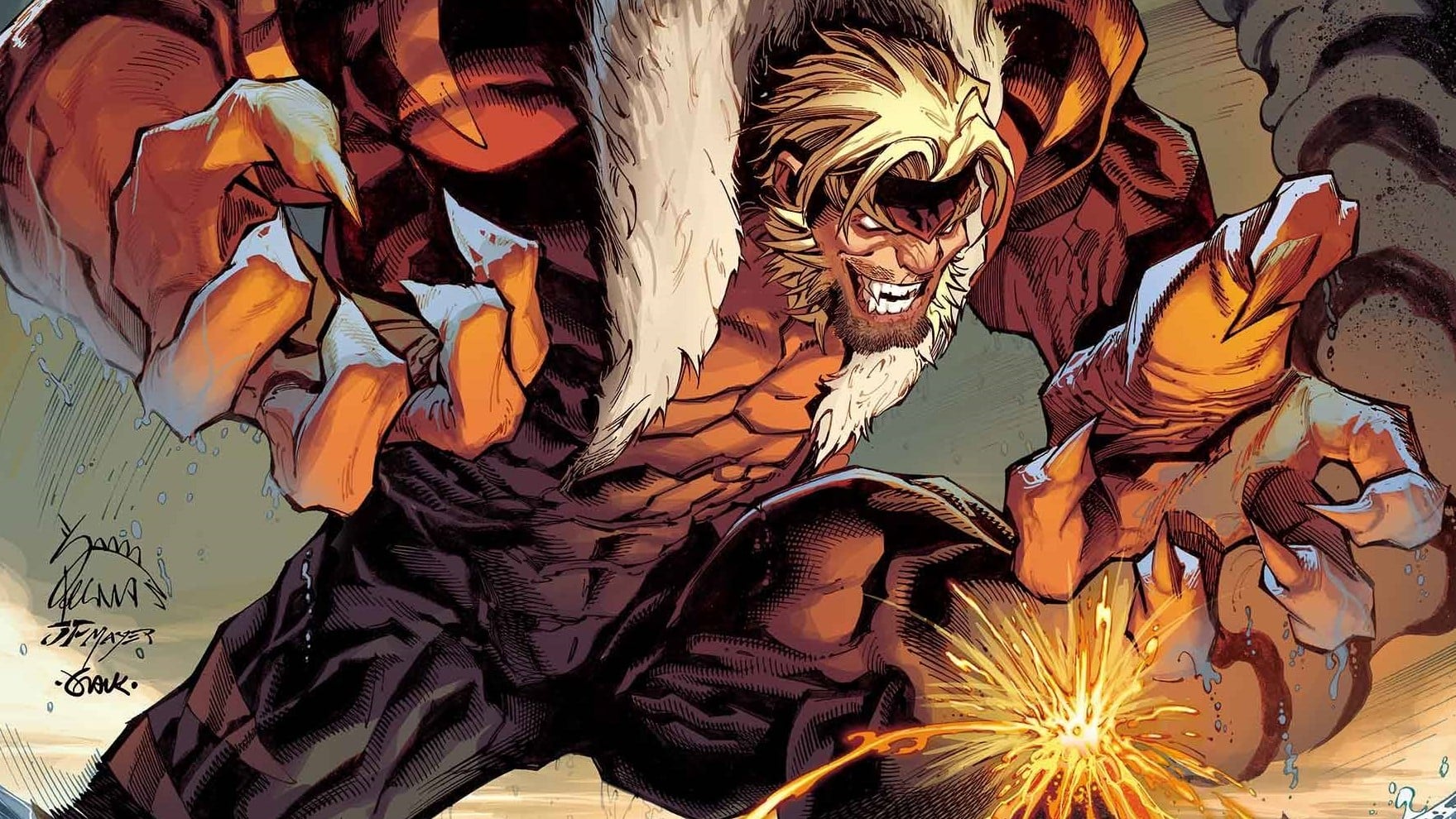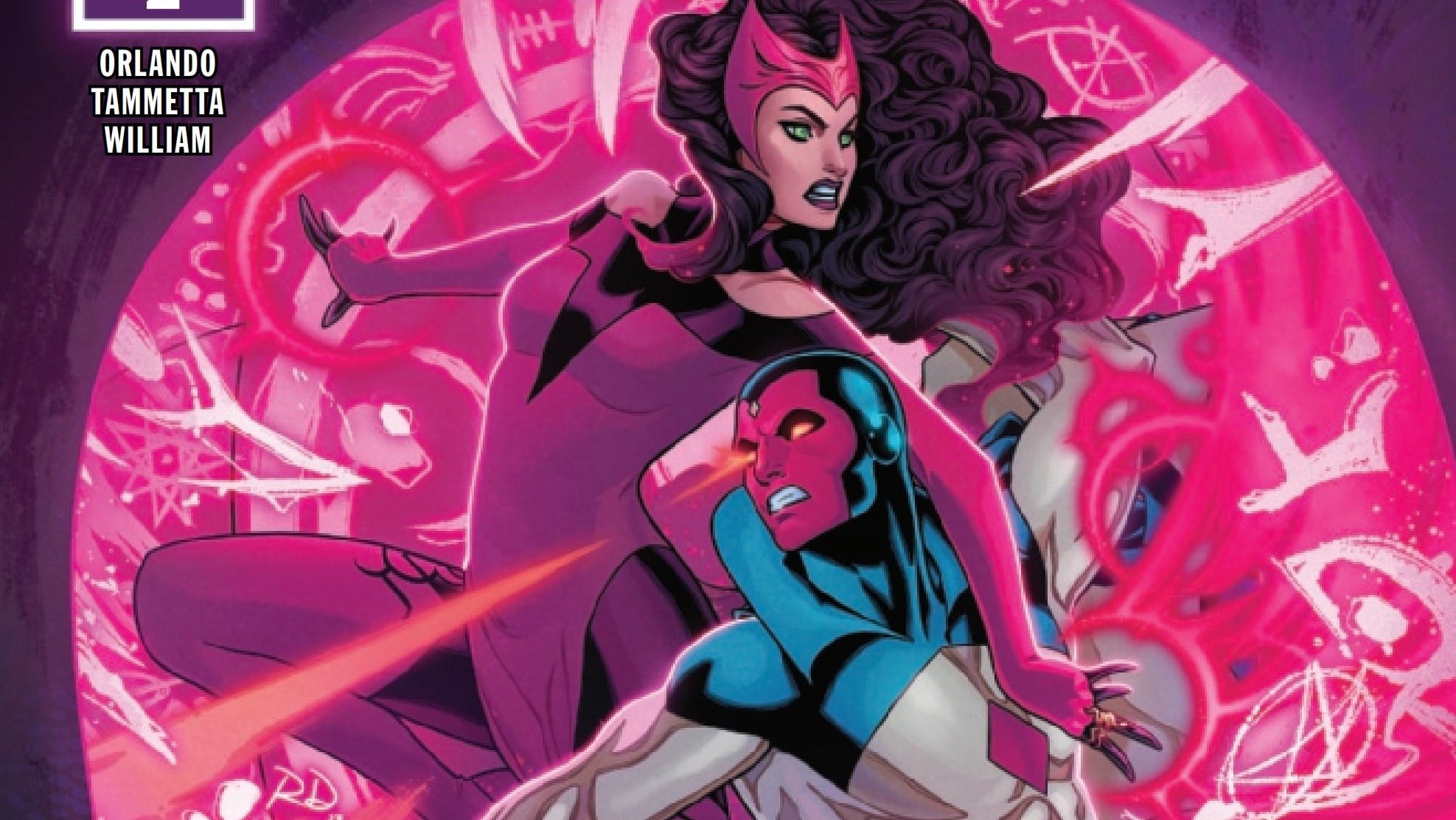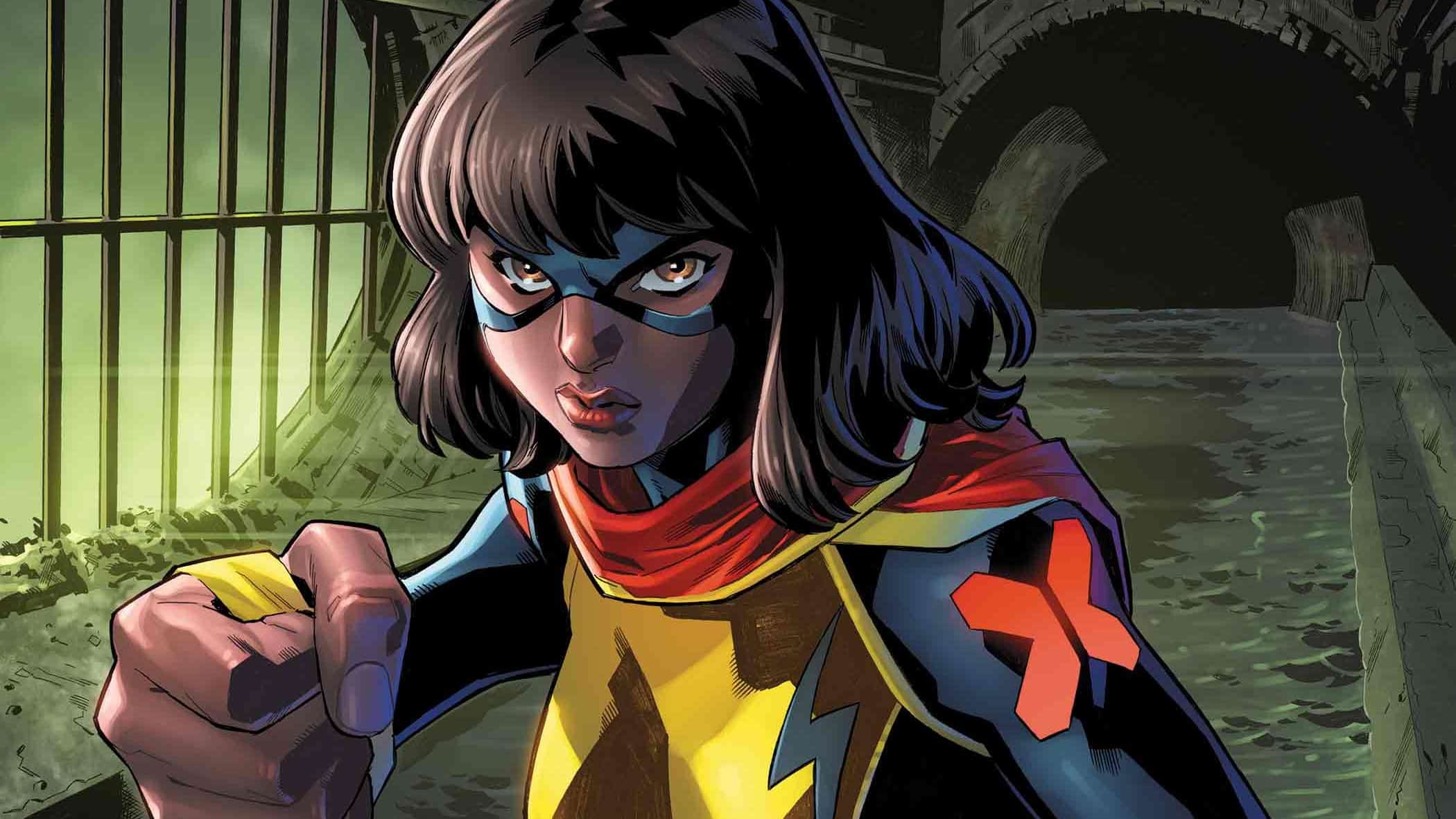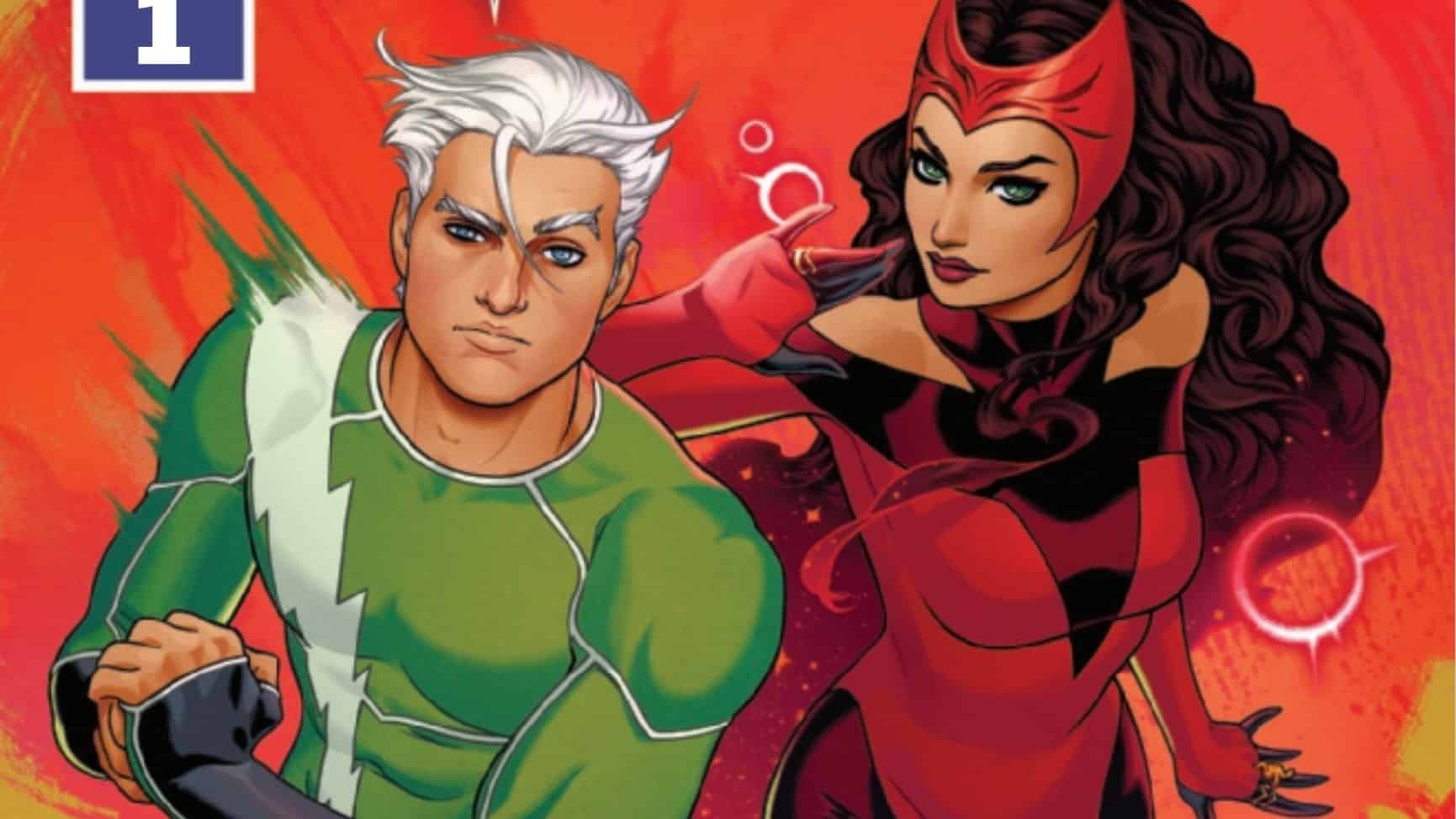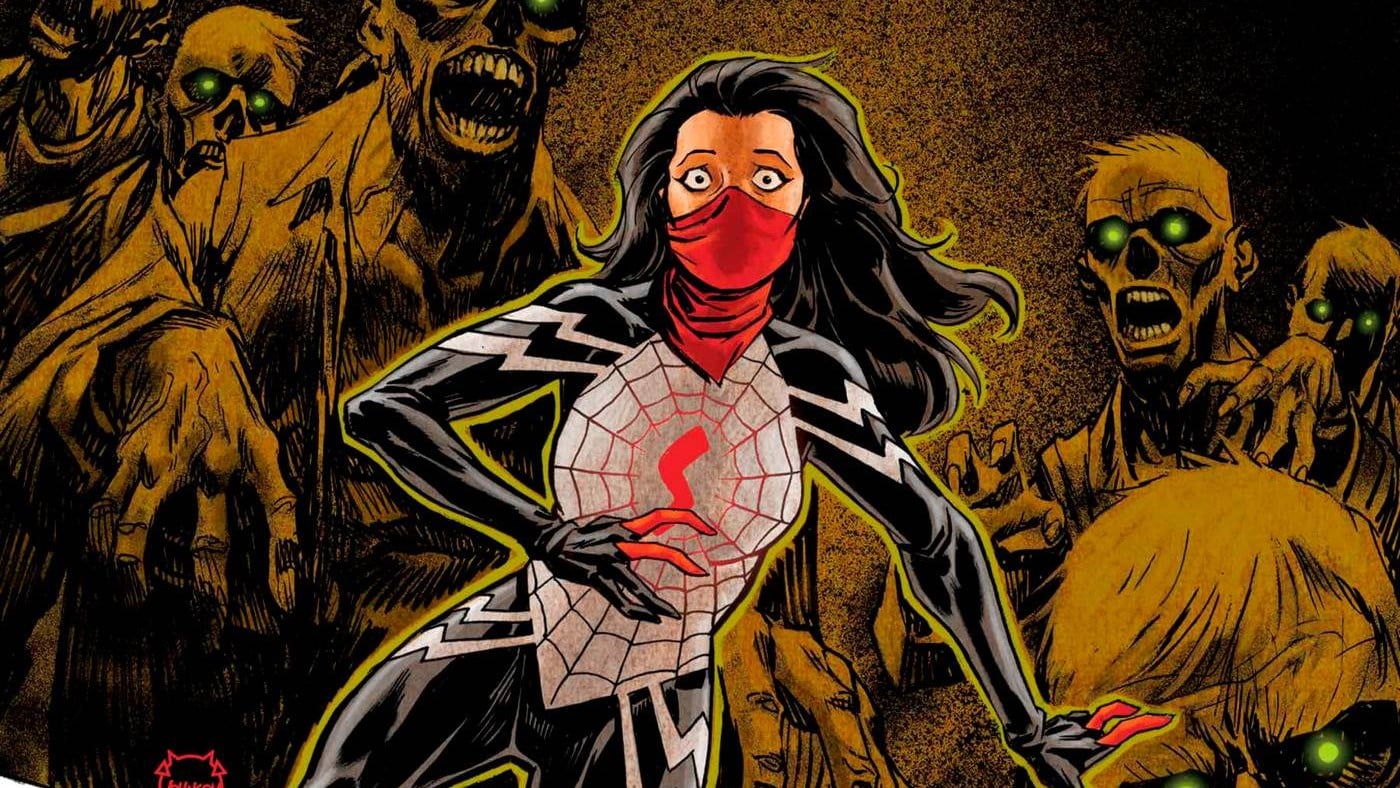Plans come together and then promptly fall apart and then become new plans, and you know what? Just read the comic, you’ll thank us later. Sabretooth #5 written by Victor LaValle, drawn by Leonard Kirk, colored by Rain Beredo, and lettered by Cory Petit.
Jude Jones: We know her name was Nanny of the Maroons. We know the land she freed still stands today.
We don’t know when or where she was born. She was likely in present-day Ghana; she was possibly royalty. She may have been enslaved; she may have come to what’s now Jamaica free. We don’t know the intricacies of how she lived, who she loved or what made her smile.
We do, however, know of her gifts: her gifts for organizing and planning, for inspiration and communication.
We know that a technologically superior British army could not, from the time her group of runaways and free people established their own land in the early 1700’s until the establishment of a peace treaty after her death, put down the rebellion. We know this rebellion freed hundreds of slaves, burning plantations in their wake.
In Jamaica, they celebrate her tenacity, her fight, her resolve. They celebrate a woman who only left survivors for the sole purpose of letting the enemy know, without question, who beat them.
I’m writing this on July 4th, the day I’m asked to celebrate America’s decision to stop the British from taxing its “property”, “property” I happen to be the progeny of. I’m taught, daily, how slaveholders were the paragons of freedom; I didn’t learn of Nanny until an ex-partner shamed me into research.
How ironic a country so in love with its own righteous revolutions can be so ignorant of so many others.
That’s the nature of an empire: “tell(ing) this story of perpetual progress which is not only false but it speaks about the rights codified without talking about the horrors that made it necessary.” (Kendra Pierre-Louis)
And that’s not far removed from the nature of Krakoa, where enlightenment and absolution is only reserved for the connected and convenient.
For everyone else? The horrors of irrelevance and pit.
I’ve thoroughly enjoyed this work, and while I’m sad it’s ending (or is it?), I’m incredibly glad it exists. Sabretooth took a character as carnal as it’s namesake and made maybe the more cerebral, relatable, and overtly Black X book of recent years. We talk about the mutant metaphor in a variety of ways; how it can stand in for a variety of people in a wide array of situations. But usually, we see the mutants represent the oppressed. How sad – and yet how utterly, sadly relatable – to see how the oppressed can use systems of the oppressor to oppress.
Anna Peppard: No people have ever been conquered quietly; silence is violence and a myth they tell you when they want you to think “those people” deserved it. A lot of white heroes are myths too, for similar reasons. Many great white American heroes steal stories from the people they or their ancestors tried to silence in order to sell their own oppression – and their own heroic resistance to oppression. Historically, X-Men comics have done better than a lot of other superhero stories at exploring different types and forms of prejudice. But they’ve also dabbled in appropriation and used metaphors that flatten horizons instead of expanding them.
This comic doesn’t do that. Nanny of the Maroons is name-checked not so imaginary heroes can appropriate her example, but to honor a neglected lineage and remind us (if I may) about the power of stories. Nanny was empowered, in part, by the stories that surrounded her. And teaching and remembering her real-life story through another, thoroughly fictional, story where you wouldn’t necessarily expect to find it – there’s power there, too. Some myths are good. Some are even true.
But Sabretooth #5 is a damn fine (and funny!) issue for a whole bunch of reasons. Let’s talk about more of them.
No Witnesses

Jude: The opening line (“this island has been through a lot”) gives a temporal point of reference–we are completely caught up with the current X line. Which means all of this – this silent dissension, this search for missing Black women, these apparitions – has been happening while everything else has been going on. This is important to remember: mutant life doesn’t begin and end at what we see in the books. Full lives, filled with frustration and fear, happen outside of those pages. Sabretooth has been nothing less than a total veneration of the overlooked and marginalized.
Last issue, we (and Sabretooth) saw Mole and Magma plan something. In Sabretooth #5, we get to see what the plan is in action: Magma erupted a volcano through Krakoa, forcing the island to suck up psychic energy from those in the immediate vicinity to heal itself. (Note: I thought Warlock negated the need to suck up psychic energy, but I’m assuming that was just for Krakoa’s baseline living functions). With everyone knocked out, the stage is now set for our gang to make its escape.
Except, unsurprisingly, there is no gang. There is just Sabretooth, making a run for Nanny’s Cove (named after Jamaican Nanny, not the one in an egg), a location he only knew of after searching Oya and Nekra’s memories, trying to hightail it out of there.
There’s anger (but not surprise) that he used the memories of the people he hoodwinked for his own selfish means.
There’s irony, of course, in a bandit leaving people behind from a space named after a liberating hero.
There’s satisfaction when we see him stopped, easily, by his ex flame Mystique (he shoulda called her Leni) and her wife Destiny.
And there’s little surprise that, after a word from Destiny, Mystique let him go.
We know Destiny’s powers work with deadly accuracy in the short term, but can be, if not inaccurate, wildly divergent in the long term. Yet we know that at certain nexus points, her abilities give her insight into which decisions will lead to what kind of results.
We know that Destiny has a habit of suggesting the least obvious decision in the moment, so it’s not really surprising to see her set him free.
Still, I wish she’d have told Mystique to hit him just one more time.
In the head.
Hard.
For Oya. For Nekra.
For Nanny.
Anna: Like both Victor Creed and my (distant) cousin George Peppard: I love it when a plan comes together. Especially when that plan involves Mystique and Destiny being agents of chaos, which is one of the queerest things you can be. Also, props to artist Leonard Kirk for giving Mystique some lovely physicality in this sequence. I’ve been around long enough to remember when it was rare to see a woman in a superhero comic who looked legitimately strong. Mystique looks strong here, and not in a fetishistic way (though that can be fun sometimes, depending). She’s framed and posed in ways that make her a convincing physical threat to Sabretooth.
It’s not a surprise that Sabretooth was lying about freeing the other exiles from the Pit. But throughout this series, even when you know a twist is coming, there’s another one to keep you guessing. Victor is free for two pages and then he isn’t; the other exiles are trapped in the Pit until they’re not. We go pretty serious and cerebral in these reviews, but in case I haven’t said so lately, it bears repeating: this comic is both smart and serious and a fine-as-heck piece of genre fiction. We sometimes slow down for conversations and revelations, but the action’s also a mile-a-minute in ways superhero comics excel at, where invulnerable (and in this case immortal) bodies are hurled against each other in a dozen different ways over the course of 22 pages. On top of everything else – it’s a hell of a lot of fun.
The Usual Suspects

Jude: I don’t know if the five (The Five!) who remained in the Pit were surprised Sabretooth played them; I do know, however, how surprised I am to see Doug get off so easy here. Only Nekra (who is now tied with Third Eye as my new favorite mutant – you a genius LaValle!) gets angry with him, but I’d argue everyone should be throwing rocks his way. His words, paired with his pained facial expression (Leonard Kirk continues to impress!), convey a kind of guilt; however, this guilt never results in an, “I’m sorry I let him out; I’m sorry I didn’t give you all the same deal I gave him; I’m sorry as I monitored everything that was going on that I didn’t step in sooner.
I’m sorry that my inaction and complicity made a bad thing worse.”
And that’s really the thing with allies of all stripes, isn’t it? Guilt and convenience do not cover for accountability and sacrifice.
Anna: I’m not sure how I feel about Doug’s positioning in this comic as a fairly lousy (white, male) ally, who really wants to do the right thing, but is unwilling to risk his own position in a corrupt hierarchy to do so. There are a lot of panels here with Doug, in his tan suit, with his perfectly combed but boyishly swoopy blond hair, being performatively sensitive. The reason it makes me go “hmm” is that I’m not sure if Doug deserves that. His literal and rhetorical resurrection during the Krakoa era speaks back to old presumptions that characters with non-physical powers have no place in superhero stories. These presumptions have ties to gender prejudices about the “right” way of being strong, heroic, and male. Doug is disenfranchised and exiled too, or at least he was, back when fans wrote letters to Marvel demanding his death, and ultimately got what they wanted.
Then again, no one in Sabretooth #5 is fully good or fully bad. (Except Xavier, who is the latter.) And it’s important to tell stories about how allies can let you down. Doug’s motivations are complex, and I’m sure we’ll see more of that in whatever comes next.
Jude: Oya, starting at the wooden throne of Sabretooth, the physical proof that prison leaves a mark on the incarcerator just as it does the incarcerated, gives the most profound line, arguably the thesis, of the entire work:
“Maybe we all carry a little hell inside us.”
Amen.
And while Doug assumes otherwise, I argue Karkoa always held a little hell inside them: be it Moria or the bones of a killer Wolverine, to argue that the hell you see is the first and only iteration of sin is a mistake too many people make about too many institutions.
Things have always been rotten; you just always haven’t been privy to the stench.
In any case, we finally see the other condemned here: Nanny (egg Nanny), Peter, and Toad finally make appearances here.
A reminder of their “sins”:
- Orphan Maker lost control, killing “innocent” humans, something that was painfully obvious he was going to do eventually (ergo his inclusion into the Hellions). Instead of being given psychological support, or training, or anything helpful, he was condemned for doing what they expected him to do. Nasty, yes, but fully in line with how America treats its needy youth.
- Nanny, either out of loving, motherly (!) obligation or out of guilt for putting Peter in the predicament in the first place, demands she be sent down with him so he doesn’t face his fate alone. How many mothers would go to hell in their child’s stead? How many mothers have to go through hell with their children when their child is incarcerated? The answer to both is “all of them.”
- And Toad? The same Toad who, on the mission that got Sabretooth condemned, downloaded the files that gave the mutants the schematics of the Orchis Forge? The same Toad who willingly took a murder charge that, in a not so roundabout way, resulted in 16 million mutants getting resurrected? There is an argument to be made that Toad, not Storm, not Magneto, not Wolverine, but TOAD, has been the most pivotal mutant of the past 3 years. Without him, more mutants are annihilated, and those already killed don’t come back.
Toad needs a statue next to Apocalypse and Genesis.
Build it now.
Anna: I totally take your point on Toad being treated unfairly in this particular instance. But I can’t quite get there with the Toad statue. Dude’s done a bit too much misogyny and stalker-y things over the years for me to feel right about giving him the pedestal treatment. But I’ll meet you halfway and say I’m interested to see what LaValle might do with him in the future.
Jude: I mean, Apocalypse earned his name and still got his statue, so clearly moral histories don’t matter. But! They should, so point well taken.
Anna: Speaking of legacy: holy shit do I ever love LaValle’s writing of Nekra. I was going to say something about her in our last review, but Jude already said so many perfect things, I didn’t think I had anything useful to add. Maybe I still don’t, but I’ll try.
So there’s this storyline involving Nekra in 70s Spider-Woman comics, where she founds this New Age psychological institute to get to the bottom of why Jessica Drew’s pheromone powers make her feel love instead of hate; because hate is the source of Nekra’s power, this makes her vulnerable, and Nekra doesn’t like being vulnerable. Jessica, meanwhile, is attending the institute to figure out why her pheromones make (most) women hate her. It’s a weird ham-fisted allegory about second-wave feminism that concludes by demonstrating, in no uncertain terms, that these two women are biologically incapable of friendship, let alone sisterhood. It’s awful and I hate it and I think about it more than I should.
This series has been a total f-you to that version of Nekra. She is defined, in this series, by her mentorship and protection of younger Black women. When she gets violently angry in this issue, it’s because she’s worried Bling! was killed by Sabretooth. In effect, her anti-feminist hate and anger now has a potentially feminist context and purpose. Women fighting for each other with justifiable righteous fury always makes me emotional. But especially this week. I love new Nekra and would follow her anywhere.
Jude: Same. Exact same.
And of Nekra and the rest of our incarcerated mutants: they aren’t being offered freedom; they’re being forced free. Doug doesn’t want to risk anyone sitting on Sabretooth’s throne, exerting influence on the island in a potentially negative way.
To which I ask:
Would Oya on the throne be negative? Or Toad? I’m not saying they should stay; I’m simply saying Doug’s rationale has some holes in it. Is this enlightenment or fear of losing control? Again, always question the motive of your allies.
Sabretooth Was Right

Jude: When he went down to the Pit, Sabretooth swore he’d take revenge on the children of those who condemned him. And in a brilliant splash page, that revenge is upon Xavier in a way he probably didn’t expect… and probably hurts him more.
The people are losing trust and faith in him. He’s being questioned, silently – for now. For a while, I assumed Sinister would be the one who broke the Council; little did I guess (but how happy am I to see!) that Xavier’s arrogance may just be the straw that breaks the arguably fascist (yeah I said it) Krakoan Quiet Council’s back.
A while back, I wrote a piece on whether Krakoa would be a place for me. And while the idea of going to a homeland has appeal, the reality is that homeland is little different and offers maybe less familiarity and love than the place I’d be asked to leave.
Why would I give up a Po-Boy and Jazz to eat super vegan and listen to Dazzler?
This group of mutants has been excised from the island physically, spiritually AND emotionally. There is, as Nekra said, no going back. The dream of Krakoa is dead for them, but that doesn’t make them any less of a mutant; I might argue it makes them more. They are not defined by a homeland; they are defined by their actions, wherever they stand.
We leave them as they are on their way to intercept Sabretooth and, if we believe Destiny’s word, act to save mutant lives.
And Sabretooth, on his way to field recruits for some kind of Bay of Pigs-like assault on the island, ends up intercepted by Orchis (who else?) and fitted with a damper collar (note: this whole “collar people to take away their power” has always made me feel uncomfortable). Orchis, among its many sins, now apparently operates a for profit mutant prison.
Is this a bit in the nose? Absolutely? Did I roll my eyes a bit? Absolutely?
Do I still love it?
Absolutely.
Private prisons are obviously, clearly, objectively evil. Full stop. So as groan-inducing as it *could* be to see the big-bad of the Krakoan era also become a prison profiteer, it’s also stunningly, sadly, accurate.
Fact is absolutely stranger than fiction, and this fact, this evil, is absolutely worth being called out, plainly and directly, so there is no misreading.
Anna: In one of our earlier reviews, I wondered if the version of Xavier we’ve seen in this comic is an illusion or mental construct of some kind, created out of Victor Creed’s hatred and warranted distrust. But he doesn’t seem to be. I am, frankly, a little surprised that LaValle was allowed to present Xavier as bad in this specific way – namely, in a fascist and potentially white supremacist way. Not bad-surprised, just surprised. I have no idea what fans who only know Patrick Stewart’s cinematic Xavier would make of this version. But they would probably be confused.
On the other hand if, like me, you’ve been reading X-Men comics for a minute, and remember versions of Xavier that did stuff like forcing Nightcrawler to suppress his difference by hiding behind an image inducer, and asking (demanding) Northstar not act “too gay” around children – it makes a lot of sense.
Jude: Wait, Xavier did what? Good god the man is horrible, which, I guess, ties in with the last scene perfectly.
Sabretooth, *in a wheelchair, no less* is surrounded by a large group of similarly rounded-up and collared mutants. I’ve called Sabretooth a fun-house mirror version of Wolverine; I’d argue that he might be a perfect (a)moral mirror of Xavier. That’s frightening but, sadly, not surprising.
He calls to them as “his Exiles,” taking the name of the multiverse-hoping mutants we haven’t seen in a while.
Thus it looks like we will be getting more of Sabretooth (and Third Eye! And Oya! And Nekra! And Toad!), as Sabretooth and the Exiles will be the next chapter in what’s shaping up to be a trilogy of terror.
Sabretooth escaped hell. He’s now in “Purgatory.”
Anna: First “A Canticle for Talia” and now some capital “E” Exiles. Talia Josephine Wagner is definitely making a comeback in 2022. I am speaking this into being.
Jude: Can a bad man ever do a good thing? What will “heaven” look like?
It looks like we’re about to find out.
Thank God.
Amen.
X-Traneous Thoughts
- On the skull shaped item Doug gives the team to plant around Sabretooth when he’s captured: I don’t think it’s another jail and I don’t think it will cause him physical pain. The only time we’ve really seen Sabretooth hurt was when he thought of Birdy. He was guilty. Doug noted that a little bit of Sabretooth was left behind; my guess is that the skull is a little bit of Krakoa to be carried around with Sabretooth. And what will that bit of Krakoa yield? I’m guessing a memory. Some guilt. A conscience.
- Is Doug an abolitionist? Maybe! Let’s ask him where he stands on policing.
- Warlock could be one of the most pivotal characters in the X-line, and yet we continue to see him used as a sight gag and a Pokémon. Free my boy.
- This is the second time I can remember the X-books dabbling in some CRT (think the X-Men naming their Central Park-based home Seneca Gardens). But while that shout-out 1) was never mentioned again and 2) felt ironic as the X-Men were literally colonizing parkland, the mention of Nanny of the Maroons felt not just organic, but connected to the larger theme of the story. Well done Victor LaValle. Well damn done.
- My Brooklyn-Jamaican ex-girlfriend to me in 2016: “you never heard of Nanny of the Maroons? OMG what do they even teach you in America?” Good question.
- It just hit me why Bling!, daughter of rappers, was named Roxanne. Duh!
- As of Legion of X #3, Birdy is officially back (and working for Nightcrawler, to boot).
- “Don’t overthink it my man. Just enjoy the wind in your face.” As critics, let us advise you: that’s the best way to enjoy comics.

